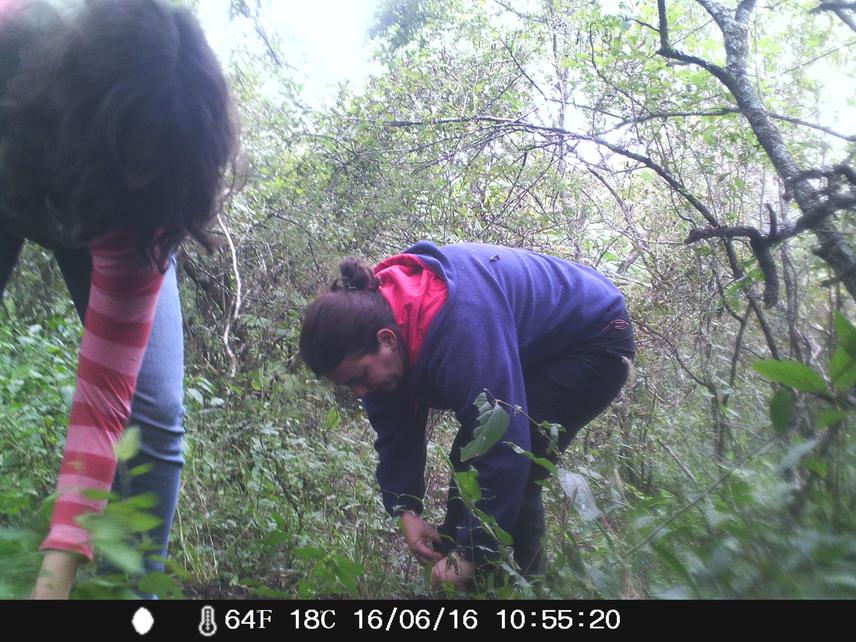Sofía Nanni
Other projects
22 Jan 2016
The Effects of Agriculture Modernization for Ecosystem Services in a Subtropical Watershed II
18 Apr 2018
Influence of Humans and Domestic Animals on Vertebrate Trophic Cascades in Forest Remnants of the Argentine Chaco: Implications for their Long-Term Conservation
11 May 2025
Strengthening Coexistence Between People and Wildlife in a Key Biodiversity Area of the Chaco Region
The aim of this project is to analyze how changes in land use due to agriculture modernization have affected the provision of the following ecosystem services: biomass storage, food production, watershed protection and biodiversity.

Working in the field, clearing the area for camera trap sampling.
Ecosystem services (ES) represent the benefits human population derives from ecosystems functioning. Probably the four most important ES are food production, watershed and soil protection, biomass storage and biodiversity conservation. Land use and land cover change (LUCC) is the main source of changes in ES quality and quantity. During the last decades the world has experienced major processes of globalization and human welfare improvement, which are partly associated with agriculture intensification in response to growing food demand and population urbanization. In terms of LUCC, two opposite patterns have been observed: deforestation and fragmentation resulting from expanding agriculture; and forest recovery related to the abandonment of marginal lands as agriculture becomes concentrated in most fertile lands.
Understanding the relative importance of these trends in the context of agriculture modernization is key to optimize ES at the landscape and regional scales. I will contribute to theorical aspects of the conflicts and trade-offs between food production and nature conservation by analyzing a full range of ES. The conceptual development will have applications to optimize land use in the context of globalization-driven LUCC. To achieve this, I will focus on a local subtropical watershed where I will analyze the regional changes in land cover, human demography and socioeconomic information for the last 30 years, and the consequences for four ES: carbon sequestration, watershed protection, biodiversity conservation and food production.
The combination of a rigorous quantitative field-based assessment with the analysis of the regional socio-economical drivers allows this study to provide a general framework on the causes and consequences of LUCC, which might be also applicable for larger scales (e.g. north-western Argentina, other developing countries). The development of an integrative model of land use efficiency will provide decision makers with information about the impacts of alternative resource management choices on the environment, economy and human welfare.